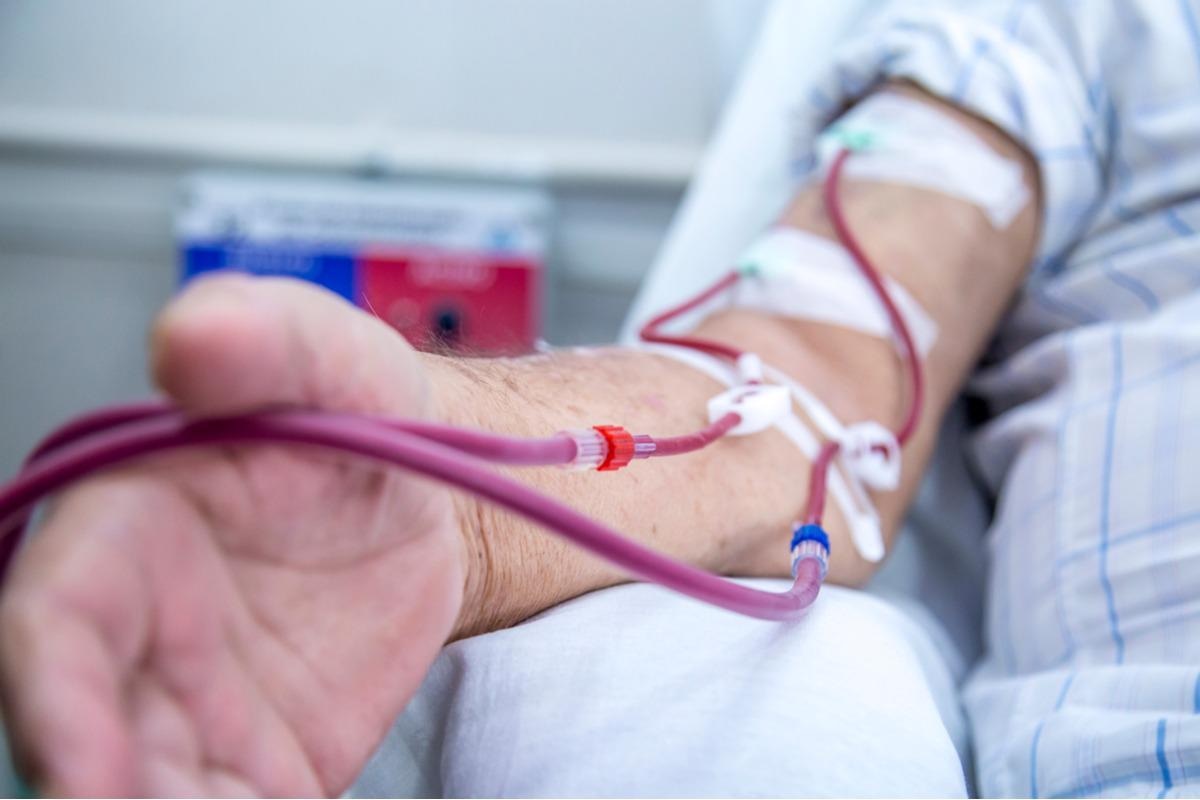In a recent study posted to the medRxiv* preprint server, researchers assessed the humoral immune responses generated by the third (booster) Pfizer-BioNTech BNT162b2 messenger ribonucleic acid (mRNA) vaccination against severe acute respiratory syndrome coronavirus 2 (SARS-CoV-2) among hemodialysis patients.
 Study: SARS-CoV-2 Booster Effect and Waning Immunity in Hemodialysis Patients. Image Credit: mailsonpignata/Shutterstock
Study: SARS-CoV-2 Booster Effect and Waning Immunity in Hemodialysis Patients. Image Credit: mailsonpignata/Shutterstock

 This news article was a review of a preliminary scientific report that had not undergone peer-review at the time of publication. Since its initial publication, the scientific report has now been peer reviewed and accepted for publication in a Scientific Journal. Links to the preliminary and peer-reviewed reports are available in the Sources section at the bottom of this article. View Sources
This news article was a review of a preliminary scientific report that had not undergone peer-review at the time of publication. Since its initial publication, the scientific report has now been peer reviewed and accepted for publication in a Scientific Journal. Links to the preliminary and peer-reviewed reports are available in the Sources section at the bottom of this article. View Sources
Background
High SARS-CoV-2-associated morbidity and mortality have been observed among end-stage kidney disease (ESKD) patients on dialysis. In such highly vulnerable populations, the standard double dose vaccination regimens of the BNT162b2 vaccine may not be adequate for immune protection against the SARS-CoV-2 variants. A booster (third) dose of the mRNA vaccines is recommended; however, data on the post-booster humoral immune responses among dialysis patients is lacking.
In recent times, a fourth mRNA vaccine dose has been recommended by the Centers for Disease Control for certain populations; however, the immune advantage of such a strategy is unclear in patients on dialysis. Nevertheless, the waning of humoral immunity observed in dialysis patients underpins the probable benefit of additional booster vaccinations.
The authors of the present study previously reported that after six months of double BNT162b2 vaccination, the antibody titers were either borderline or undetectable among 40% of hemodialysis patients.
About the study
In the present study, researchers built on their previous work by evaluating the anti-SARS-CoV-2 humoral immune responses induced by the third (booster) BNT162b2 vaccine dose among hemodialysis patients.
Semi-quantitative immunoglobulin G (IgG) antibody titers against the receptor-binding domain (RBD) of SARS-CoV-2 spike (S) protein subunit 1 (S1) were evaluated after two weeks, six weeks, and after 11 weeks of triple BNT162b2 vaccination using enzyme-linked immunosorbent assays (ELISA). The results were expressed in binding antibody units (BAU)/mL and considered negative, borderline, and positive if the antibody titers were below 25.6 BAU/mL, if they ranged between 25.6 and 35.2 BAU/mL, and if they exceeded 35.2 BAU/mL, respectively. Prior SARS-CoV-2 infections were identified using the SARS-CoV-2 total antibody (Ab) assay in which IgG titers against the SARS-CoV-2 nucleocapsid (N) protein were assessed.
Results
Out of 35 ESKD patients on dialysis, 27 (77%) had received the third (booster) dose of the BNT162b2 vaccine. After two weeks of booster vaccination, the anti-S1 RBD IgG antibody titers substantially increased by 112-fold from 60 BAU/mL to 6216 BAU/mL. However, the titers decreased to 2654 BAU/mL after six weeks of booster vaccination and further decreased to 1444 BAU/mL up to 11 weeks of a booster vaccination. Nevertheless, after 11 weeks of booster vaccination, the anti-S1 RBD titers were higher by 40-fold compared to the pre-booster titers. On the whole, the titers decreased by 47% every month.
Nine study participants had borderline or negative anti-S1 RBD titers before booster vaccination, of which eight developed humoral antibodies exceeding 35 BAU/mL after receiving the vaccine booster. After two weeks of booster vaccination, participants with COVID-19 history demonstrated a lesser proportional elevation in the antibody titers (51-fold) than the COVID-19-naïve participants (144-fold). This indicated that previously SARS-CoV-2-infected participants demonstrated a blunt increase in antibody titers after the initial vaccine boost and, on the whole, attained comparable peak titers as COVID-19-naïve participants.
The booster dose substantially increased the anti-S1 RBD IgG titers; however, the titers declined in the coming weeks. Similar antibody waning trends have been observed among the general (healthy) population. However, the peak antibody titers and the seroconversion rates among ESKD patients have been found to be lower compared to healthy individuals. Booster vaccinations could increase the durability of protective immune responses, especially against the SARS-CoV-2 variants among ESKD patients.
Conclusion
Overall, the study findings showed a boost in humoral immune responses by the third BNT162b2 dose against SARS-CoV-2, followed by antibody waning among hemodialysis patients. The findings support the administration of vaccine boosters among ESKD patients. However, further research with larger sample sizes and longer follow-up periods is required to determine the immunogenicity of mRNA vaccine boosters. Future studies must analyze the T lymphocyte/ cell-mediated immunity in addition to humoral immune responses generated on triple BNT162b2 vaccination.

 This news article was a review of a preliminary scientific report that had not undergone peer-review at the time of publication. Since its initial publication, the scientific report has now been peer reviewed and accepted for publication in a Scientific Journal. Links to the preliminary and peer-reviewed reports are available in the Sources section at the bottom of this article. View Sources
This news article was a review of a preliminary scientific report that had not undergone peer-review at the time of publication. Since its initial publication, the scientific report has now been peer reviewed and accepted for publication in a Scientific Journal. Links to the preliminary and peer-reviewed reports are available in the Sources section at the bottom of this article. View Sources